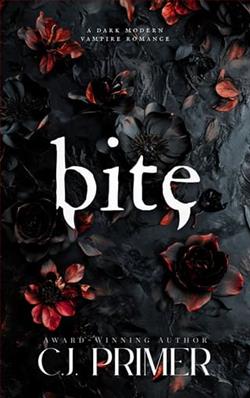Page 106 of Nine Months to Bear
“Lied about what?”
“This isn’t a boat.” She gestures around the salon with its cream leather seating, crystal decanters, and the original Dürer piece hanging above the bar. “This is, like, basically a floating palace.”
I set down the papers. “It’s a hundred and sixty feet. Hardly a ‘palace.’”
“Humble doesn’t suit you.” She tiptoes barefoot across the teak floors. “This thing cost more than the house I grew up in. Probably more than all my neighbors’ houses put together, actually.” She sinks into the chair across from me, shaking herhead. “I mean, the crew alone must cost a fortune. The chef, the captain, the?—”
“Eight full-time, twelve when we’re entertaining.” I settle back. “Does that bother you?”
“Should it?”
“You tell me.”
Olivia is quiet for a long moment, her amber eyes taking in the understated luxury surrounding us. “What did it cost you?” she asks finally.
“Would you like to see the receipt?”
“I’m being serious.” Her gaze meets mine. “What did you pay for all this? Like, really?”
I don’t answer right away. I pour myself two fingers of vodka from the Fabergé crystal decanter on the side table. Sit back. Sip.
“An ordinary life,” I say at last.
“What does that mean?”
I take another sip and hold it in my mouth. “It means I was thirteen when I killed my first man. Fifteen when I lost my virginity to a prostitute my uncle bought for my birthday. Sixteen when I got my first tattoo to cover the scars from my father’s funeral.”
Her face pales. “Stefan?—”
“You asked what it cost.” I set down the glass. “That’s what it cost. Childhood. Innocence. The luxury of believing people are fundamentally good.”
Waves kiss the hull like wet fingers trying to drag us down into the depths. It’s a good reminder, because that’s the funny thing about money—it’s just a thin, gilded line separating you from a dark ocean that would swallow you whole if it could.
“I’m sorry,” she whispers.
“Don’t be. I got what I wanted.”
“Did you?”
Again, I don’t answer.
Because I’m not sure I know anymore.
Olivia stands and moves to the windows. Her reflection is ghostlike in the glass. “My mother used to tell me that success requires sacrifice. That you can’t have everything.”
“Smart woman.”
“Is she?” The bitterness of her laugh surprises me. “Margaret Aster, chief of surgery at Mass General. Brilliant. Ruthless. And completely incapable of loving anything that doesn’t reflect glory back on her.”
I watch her shoulders tense beneath the thin fabric of her dress. “Tell me more.”
“When I was seven, I brought her white orchids from the school greenhouse. Stole them, actually, because I thought they were the most beautiful things I’d ever seen.” She touches the window glass with her fingertips. “She smiled. Really smiled, not the frozen fake thing she usually gave me. She said they were perfect.”
“And?”
“And so I became obsessed. Every week, I’d find new orchids. Different varieties, different colors. I learned their Latin names, their care requirements. All to chase that smile.”
The pieces click together. “The orchids in your office.”















